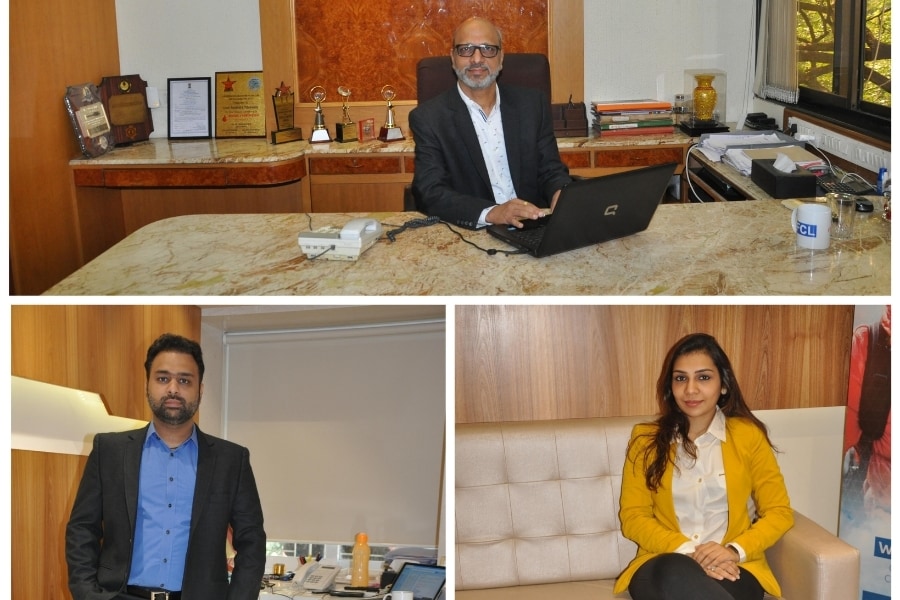
Fineotex Chemical: The dark horse of the specialty chemical industry
The Tibrewala family's debt-free business continues to remain resilient and has ambitious growth plans

With a vision to be a leader in specialty textile chemicals in domestic as well as in the International market, the Fineotex Chemical group was set up in 1979 by Mr. Surendra Tibrewala. Fineotex Chemical Limited (FCL) is one of the leading manufacturers of chemicals for textiles, construction, water treatment, fertilizer, leather, and paint industry. FCL manufactures and provides an entire range of products for pre-treatment Process, Dyeing Process, Printing Process, and Finishing Process for the textile processing in a well-diversified business across key international textile hubs such as Brazil, Bangladesh, Germany, Indonesia, Malaysia, Singapore, Thailand, USA, and Vietnam.
In 2011, FCL had a technical collaboration with a well-known European founded specialty chemical manufacturing company, Biotex. Since the acquisition, the company has grown multi-fold and turned around the capital structure which has helped to make it debt-free.
Both companies complement each other’s strengths and customers across the globe recognize the true value proposition. With Biotex leading the research and development initiatives and overall product development, the company leverages its industry insights and long-standing customer relationships with Biotex’s high-end product expertise and regional positioning to serve global customers. The company also has strong in-house development capabilities to grow market share across existing and new customers in both Indian and International markets and aims to continue to develop direct customer relationships and expand the distribution network.
Fineotex chemical is one of the prominent names in the Indian stock exchanges, especially in the specialty chemical segment.
Keeping the shareholder value as the key interest, the company has consistently delivered more than 20% CAGR growth in the past 10 years. Despite C-19 concerns the company continues to maintain a strong EBITDA margin profile as per the industry benchmark led by its cost rationalization efforts in a difficult business environment. The chemical company believes in keeping a conservative approach to funding acquisitions, capacity expansions, and greenfield/brownfield developments through internal accruals. Capital structure is targeted to be net debt neutral. Despite such robust fundamentals, the Company continues to trade at compelling valuations when compared to its peers in the speciality chemicals space.
FCL is the second largest in textile specialty chemicals & enzymes in India. It has a consistent performance track record of a CAGR of 24% in revenues and 20% in EBITDA over the last 10 years. The operating cash flows have grown at the rate of 20% during the same period and it’s been a full tax-paying entity. The debt-free company has cash & cash equivalents of more than Rs. 59 crs which could be utilized for Capex or acquisition as the pandemic has thrown up several opportunities especially in the mid-range, possibly at distress valuation. The company has committed Rs. 27 crs for a new brownfield manufacturing facility at Ambernath, Maharashtra and expects to commission the first phase by first quarter of Financial Year 2022. This plant will play an integral role in the growth journey over the next 3 to 5 years. Fineotex’s subsidiary, BioTex Malaysia has been integrated well, multiplying the profits 4x as well making it debt-free.
The second generation of the Tibrewala family has been in the saddle for the last many years, which is deemed positive, especially for small and midcap companies. The company is also in midst of a buyback of the equity and this is the second such buyback in the last 3 years.
Fineotex over the years has built its niche as a specialized player providing customized solutions to customers primarily across textiles. The products form a very small portion of the overall production cost for company’s customers and add significant value to the end product. Hence, customers are relatively price inelastic and the offerings command significant premium over commoditized products. Customer stickiness is high which creates an entry barrier for new competition.




